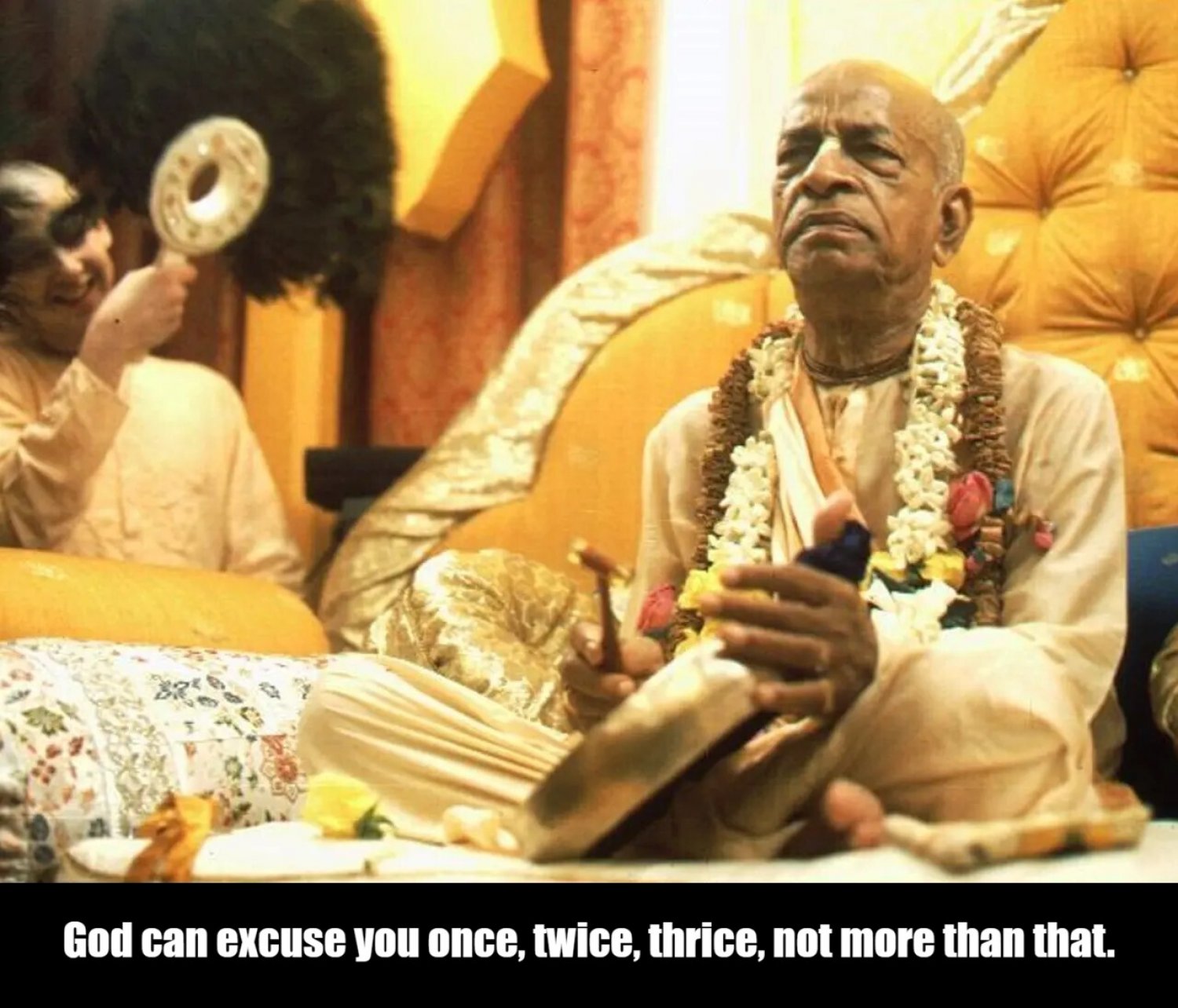The Cult of Endless Forgiveness

In urgent need to forgive everybody everywhere all the time, we hear occasionally, as if in need to be forgiven themselves, the preachers of such an unconditional cult of forgiveness spreading their “love.”
Will they forgive those who may disagree with such an indiscriminate policy? Hardly. Why not? Because the doctrine of unconditional forgiveness is a dream only.
If such a dream were reality, there would be no need for the battle of Kuruksetra; there would be no need for the Bhagavad Gita to be spoken; we could all wish the best to each other, leave things as they are, and go home.
Forgiveness is a laudable attitude...only applicable when the opposing party achieves a humble introspective state of consciousness and is ready to accept superior guidance.
Such a reformed soul can be given another chance to prove to those who suffered from her selfishness and cruelty that things indeed changed. To see such a reformation of heart is most inspiring to any real devotee.
How many times could we witness such a wonder happen? Not many times. Instead, the cult of unconditional forgiveness opens doors to chronic, repeated abuse and violence committed by those who came after prolonged time of their criminal activities to understand that actually they have the right to act the way they do due to their secured institutional or individual position. And the forgiving one became unwillingly a collaborator of crimes he may not commit himself. As one man said, “I am not afraid of those who are violent. I am afraid of those who faciliate violence.”
In this way, violence and abuse spread epidemicly until they reach such an established level that Krsna Himself must activate the law of karma to finally bring such predators to a level to which they belong.
He himself and even His pure representatives are able to use the most harsh vocabulary in order to point out to the public who the real criminal is.
And so forgiveness is a noble act of mercy, provided the one who is guilty of a particular crime is entirely changing its course of action, turning from an abusive, cruel master to a servant. It is the action that provides the evidence for such change, not a mere usage of words.
In this way, following Srila Prabhupada's example of discriminate forgiveness, we can avoid getting cheated by notoric cheaters and opportunists who got used to it to “be forgiven” all the time.
As the concern in regards to an offence is natural for a devotee, a real devotee is also aware of the mayavada doctrine being preached widely, advocating the need for “positive thinking” and the avoidance of “negative thinking.”
A devotee, a pessimist towards anything material, embraces everything positive being disseminated from the spiritual platform.
For him, there is no duality of positive and negative. Even ghastly events like death, experienced on a material platform, are for a devotee positive, waking up the spiritually inclined to become more sincere seakers of the Ultimate Truth.
And so anything experienced negatively in the material world a devotee turns into positive spiritually inspiring and motivating events, heightening his desire to go back home back to Godhead.
The same thing that drives the materially attached ones into deep depressions, leading occasionally even to suicide, is inspiring a devotee to become even more attached to spiritual reality.
It is for this reason that when becoming truly dear to Krsna, a devotee doesn't get spared materially discouraging ordeals.
In this way, Krsna personally to the word pushes him to leave this world in a detached spirit. After all, pain in itself has a positive function; it's a warning signal that we should remove ourselves from an uncomfortable or even dangerous situation. Poverty is freeing one from envy of others and provokes a charitable, compassionate mood on the side of the pious ones.
It is also minimising the scope of prospects for illusory sense gratification and the opportunity to get proud.
Only the few very intelligent ones understand the riches being given to them as a gift of God; the absolute majority of conditioned souls follow the principle “grab what you can" ...even when they profess sometimes as devotees of the Lord.
But a real devotee turns even failure into success by becoming more attached to the Lord and His pure devotee. Fool “grabs what he can” and gets draged down by the facilities he acquired, often illegally.
A real devotee is raising from the scene of desaster even more envigorated and enriched by another realisation of the futility of achieving happiness by dint of sense gratification.
It is for this reason that “bad things happen to good people.”
All pain and consequent frustration is perceived by the devotee in a positive way, as the mayavadi tries to ignore it altogether by sentimentally advocating “positive thinking.”
A walk through a semitary or a slaughterhouse makes a devotee even more inspired to leave this material world, and when more advanced, it fills him with compassion upon the illusioned fools running around aimlessly in search for happiness while missing the real fun in Krsna Consciousness. Studying the perfect example of Srila Prabhupada, the ultimate perfect spiritual optimist and material pesimist, who never hesitated to describe graphically the horrors this world introduces us to all the time, he was simulatedly offering the perfect happiness we can find on spiritual platforms.
In his preaching, we find even the most horrifying event being turned into a spiritual experience, as there is no bad or good in spiritual life; everything can be turned into a spiritually motivating event in Krsna Consciousness.
And so a real devotee doesn't take part in the foollish mumbling of “positive thinkers,” nor does he take part in the depressing tales of the “negative thinkers.”
He is the ultimate optimist by being a well-informed pessimist.